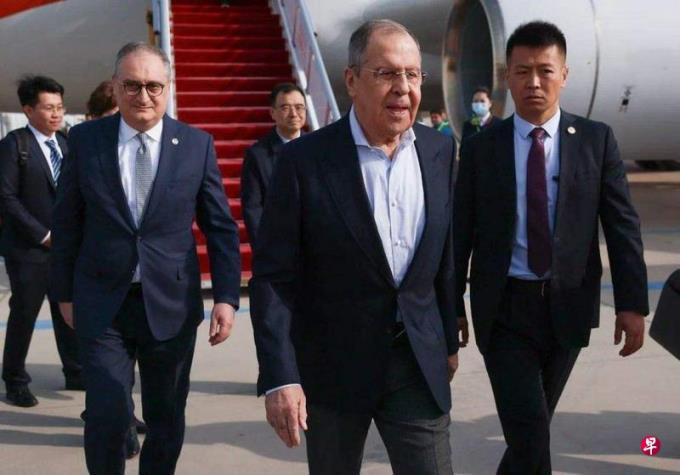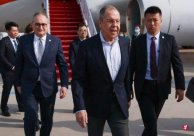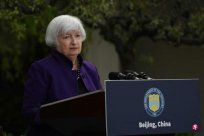
Russian Foreign Minister Ravorov arrived in Beijing on Monday morning and had talks with Chinese Foreign Minister Wang Yi on urgent issues such as the Russian and U first -level situation and the situation in the Asia -Pacific region.The Russian experts interviewed believed that Lavrov's trip was mainly prepared for President Putin to visit China.
Lavrov visited China at this time, just to warn China on the subject of "aid Russia" in the United States, and US Secretary of State Brills may attract much attention when it recently visited China.
The Chinese Ministry of Foreign Affairs announced on Sunday that Lavrov was invited to officially visit China from April 8th to 9th.On the morning of the 8th, the Russian Ministry of Foreign Affairs took the lead in publishing the news of Rafrov's arrival in Beijing on the X platform (formerly known as Twitter), but Chinese mainstream media did not follow up reports.
When Lavrov's special plane landed, the US Treasury Minister Yellen, who visited China for five days, was still in Beijing.Yellen had previously warned that Chinese companies must not support Russia's military operations in Ukraine, otherwise they will face serious consequences.
U.S. President Bynden expressed concern for China to help Russia rebuild the military industry when he talked with Chinese officials on Tuesday.Yellen and US Secretary of State Brillin visited China.Blints warned in Europe last week that China is using "A worry-free scale" , including rocket advancement, including rocket advancementProducts and other products.
China Foreign Ministry spokesman Mao Ning emphasized at a regular press conference on Monday that China has always controlled the export of dual -purpose items (referring to the sensitive items of military and civilian dual -use and easy toxic chemicals) in accordance with laws and regulations.The state should not discredit the normal state relations between China and Russia, and should not harm the legitimate rights and interests of Chinese and Chinese enterprises.
Zhu Feng, Executive Dean of the School of International Relations of Nanjing University, said in an interview with Lianhe Morning Post that China insists on not selling fatal weapons and equipment to any party. This position is most in line with China's interests.The United States' pressure on China and Russia's normal trade stems from concerns about the potential of Russian military industry, especially at the moment when the Ukraine war is tight.
According to the data of the General Administration of Customs of China, China -Russia's trade volume reached a record 240.11 billion US dollars (S $ 323.5 billion) in 2023, an increase of 26.3%year -on -year.Export products are mainly electromechanical products such as cars, mobile phones.
The senior researcher of the Carnegie International Peace Foundation Igor Denisov told the United Zard that the trip to Lavrov Beijing was mainly prepared for Russian President Putin to visit China.
Yuri Tavorvsky, a professor at the Russian People's Friendship University, analyzed the United Zard that the two countries' foreign ministers will finalize the preliminary agenda of the heads of state of the two countries. Military cooperation between the two countries is more likely to be completed through military channels.
Reuters quoted in March, saying that Putin is likely to visit China in late May, saying that this will be the first visit after Putin's "six re -election".
While China -Russia maintains close high -level exchanges, the United States has continued to step up China.The Pacific Command of the United States first confirmed on Saturday that the "Standard-6" air defense missile and the Tomahawk cruise missile land launch system will be deployed in the Indo-Pacific region.AUKUS (AUKUS) is also considering incorporating into Japan to deter China.
Zhu Feng believes that the U.S. military deployment in the Western Pacific's use of the South China Sea's situation is actually a "routine" of the deployment of medium -range missiles during the Cold War during the Cold War.This camp does not conform to China's interests and does not meet the overall interests of the region.




